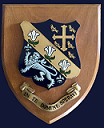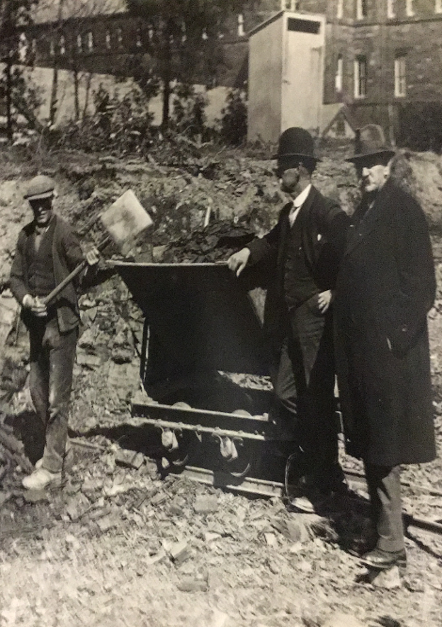
St Joseph's Society


I enjoyed and benefitted very much from the experience of life at the College, and after I left Upholland my mother suggested that I should become a teacher, but I didn’t think that I had the patience to be a good teacher, and so I considered other options.
At the time the National Giro was being set up and there were adverts in the Liverpool Echo for prospective programmers. So I applied, as one of about 300 candidates, and went for an aptitude test in London. I was then called for an interview, and that interview was one of the toughest I have ever had for any job.
Two of us were being interviewed and we had five interviewers. The day began with us writing out our C.Vs, followed by an interview with two of the interviewers. We were then given a slip of paper with half a dozen debating topics, told to choose one, and asked to defend or attack that topic at the end of the interview. We then had a two hour interview, and at the end, commented upon the chosen topic as requested.
We then broke for lunch, and afterwards the process was repeated, this time with the other three interviewers. We were told that one of them was from the Civil Service, and she was there only to ensure that the quality of the interviews conducted by Post Office staff adhered to Civil Service standards, as the Post Office itself was in the process of being hived off from the Civil Service. She was not there to assess us as possible employees, but having said that, she did interject from time to time. Again, we had been given half a dozen debating topics, and as before, told to choose to defend or to attack one. This was about the time of the world’s first heart transplant, and when the interview phase was over and I was about to defend my chosen topic, one of the interviewers said that he thought the given topics were rather boring, so could I comment instead upon the ethics of heart transplantation?
Fortunately, my experiences in the Debating Society in the Higher Line had equipped me to deal with the particular challenges posed in this interview, and I came first out of those 300 candidates. This meant that I was offered a job in Giro and immediately became responsible for the Debit Program (Thanks Upholland!).
I imagine that anyone who went through 1st and 2nd Phils with Fr. Gaine will have fond memories of being taught the basics of Predicate Calculus as a prelude to dealing with the vagaries of early 20th century British Philosophy. I certainly did not think at the time that that would subsequently have any practical application, but when dealing with the instruction set of an IBM mainframe, at least I understood why the pattern of instructions follows Reverse Polish logic. Being able to manipulate Venn diagrams also had a beneficial effect when I faced the challenge of writing a language which could be used by non-IT folk to create query programs to delve into the National Giro’s database (Thanks, Fr. Gaine!).
After working at National Giro, I moved on and worked for fourteen years at Leyland Trucks, after which my job became redundant and I was out of work for three years. Towards the end of this period I was in a Job Club run by the DHSS, where I attended a workshop aimed at optimising my C.V. In the preamble to it, I naturally said that I had attended Upholland College for eight years with a view towards possible ordination as a Catholic Priest. Without exception, everyone in the workshop, and the DHSS official running the workshop, advised me strongly to delete this from my CV as they thought this would damage my prospects of obtaining work, as any possible employer would look askance at someone who might be inclined to view the ethics of their business practices with a critical eye! I was ‘blowed’ if I was going to deny or ignore what I had done at Upholland, and the preamble to my CV remained unchanged, but during those three years I did receive over 800 rejection letters!
I then had a very bad bout of laryngitis, and was in bed recovering when I received a call from an agent who said that a pharmaceutical company just north of London was interested in interviewing me for a contract job. I said that I would not normally seek to present myself for an interview until my attendant cold sores had cleared up, but, I thought, if employees of a pharmaceutical company did not understand what a germ or virus did, then maybe the nation was in serious trouble! Accordingly, I (and my cold sores) went down to Denham for an interview, conducted by a very intelligent Muslim girl. I felt certain that Asma just wanted to count how many heads this individual who had considered becoming a Catholic Priest actually had! In fact, we got on very well and I was given a month long contract, which was subsequently extended to a year. More importantly, it enabled me to add pharmaceutical experience to my C.V, and I spent the next 20 years writing the programs which answer the two questions which are posed for every new drug – ‘is it efficacious’ (does it do what the scientists and the medics hope it will do?) and ‘is it safe’ (all drugs have side effects, but are the side effects acceptable, given the benefits that they give?)
Within the pharmaceutical sector there is a very widespread (and mistaken) opinion that the only individuals who can work in this sector are those who have pharmaceutical experience. The barriers to entrance therefore are quite high, but thanks to Asma and Upholland College, these were barriers I was able to breach!
After having a contract with Shire Pharmaceuticals in Hampshire, an agent asked if I would consider working in Frankfurt? I thought that it would hardly take me longer to get there than to my home in Preston, considering the time it took me to drive from Hampshire to Preston every Friday night. (NB I have grown to dislike the M6 more than any other motorway in Europe!). My judgement was correct, and I found that I could get home to Preston from Frankfurt faster than I could make the journey from Hampshire! So, I spent more than 5 years working in Germany, and I have to thank Fr. Dalton for his attempts to teach me some German, which I found to be most useful.
While working in Germany I found myself once debating with a Muslim whose father had been a founder member of the Muslim Brotherhood. When his wife was expecting their third child, I ended up driving him to the Catholic Hospital in Mainz. He had come to the conclusion that the care she received there was superior to the care received in any other hospital. He criticised only one doctor within the hospital on the grounds that he wasn’t Catholic enough! However, I don’t think that he accepted my assertion that the ratio of men to women who make it to Heaven is not 8 to 1 as he would have it, but I never did ask his wife what she thought!
In summary, I enjoyed my years at Upholland very much and I received an education which focused on my weak subjects (had I stayed at St. Edward’s, I would have focussed exclusively on my strong points of maths, physics and chemistry). That education has benefitted me, often in the most unexpected of ways, and I am forever in debt to the staff of Upholland who made my stay there so enjoyable and so productive.